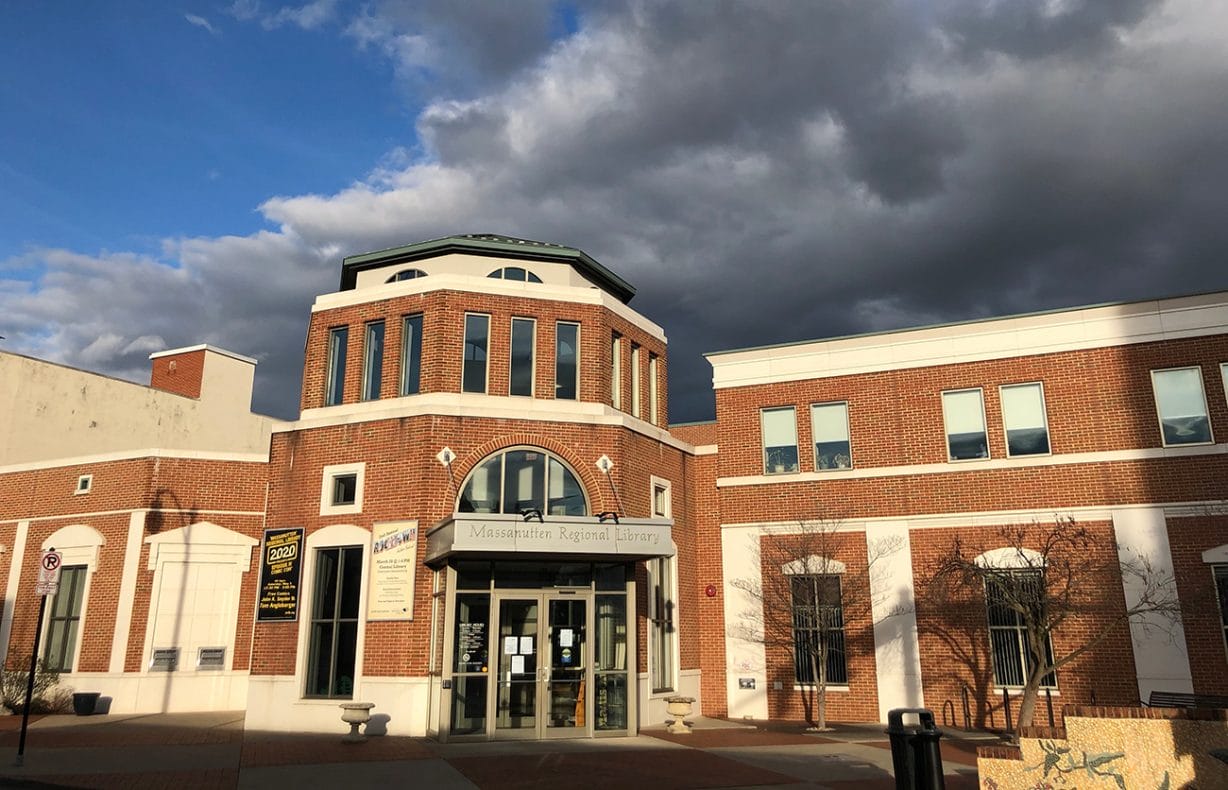
By Charlotte Matherly, contributor
Since she arrived a little over a year ago, Allison Brueckner has been helping to make the Massanutten Regional Library a little more dementia-friendly. It’s involved launching memory-care programs, gatherings and even kits that can be checked out — and come fall, it’ll be featured in a segment on PBS.
“Living Well with Dementia,” a docuseries by Virginia Public Media, the local PBS affiliate, tackles memory care, what it’s like to live with dementia and what can be done to help.
Brueckner, who leads MRL’s Memory Partners program, said she got connected with the docuseries through Zach Elder, MRL’s director, and Nan Carmack, director of the Library of Virginia, who saw MRL’s dementia-friendly efforts and wanted to highlight them.
“It was exciting to know that we were going to be a part of something very, very important and beautiful … raising the awareness and advocating for the needs of those living with dementia,” Brueckner said.
All this started when Brueckner got the idea to start hosting memory cafes at the library. Memory cafes are gatherings for people living with dementia and their caregivers to come and relax, tell stories and do crafts and other activities that stimulate the brain.
“These memory cafes provide an opportunity for [them] to come and just be themselves out of the 36-hour workday, to not worry about anything for the moment … and to spark some memory and make new friends,” Brueckner said.
The success of those programs inspired the library to provide memory kits, which people can check out as “caregiver totes” that include games, sensory objects and other activities that help people with dementia.
Becoming a dementia-friendly library has meant a physical transformation as well. MRL has adjusted its spaces to be more comfortable and suitable. For example, people with dementia tend to have issues with depth perception, so if they come across a black rug, they may feel like they’re about to step into a hole, Brueckner said. The library has switched up rugs and adjusted lighting to be less fluorescent and calming, as well.
Heather Lawrence, the caregiver support coordinator at the Valley Program for Aging Services (VPAS) and Brueckner’s collaborator, said there are memory cafes around the Shenandoah Valley in places like Staunton and Waynesboro, and she hopes to start another in the southwest region.
John Sullivan, who’s been diagnosed with several forms of dementia, and his wife and caregiver, Pat Sullivan, moved to Shenandoah in 2022. They both advocate for dementia awareness and care. The couple will be featured in the docuseries alongside MRL.
After recently attending one of the Harrisonburg library’s memory cafes, Pat said they’ve cleared their schedule to keep going in the future.
“I am hugely impressed with the people at the library and VPAS for their creativity and commitment to dementia friendliness,” Pat Sullivan said. “The first Thursday of each month is now sacred on our calendar to the cafe.”
Because dementia, like many chronic health problems, is costly, Sullivan said free library resources like memory kits are helpful.
“This disease — it kills budgets,” she said.
As she advocates for more public discussion of dementia, resources and collaboration, Pat Sullivan said libraries are a safe place for everyone and offer information and inspiration
“As they openly honor people who live with dementia as worthy of care and attention, libraries help break stigma and the falsehood that dementia is all about doom, gloom and tragedy,” she said. “They show abundant ways to live well and richly even if there never is a cure for dementia.”
The specific date of the premier on Virginia Public Media for the program about MRL’s efforts hasn’t been set yet.
Thanks for reading The Citizen, which won the Virginia Press Association’s 2022 News Sweepstakes award as the top online news site in Virginia. We’re independent. We’re local. We pay our contributors, and the money you give goes directly to the reporting. No overhead. No printing costs. Just facts, stories and context. We value your support.
